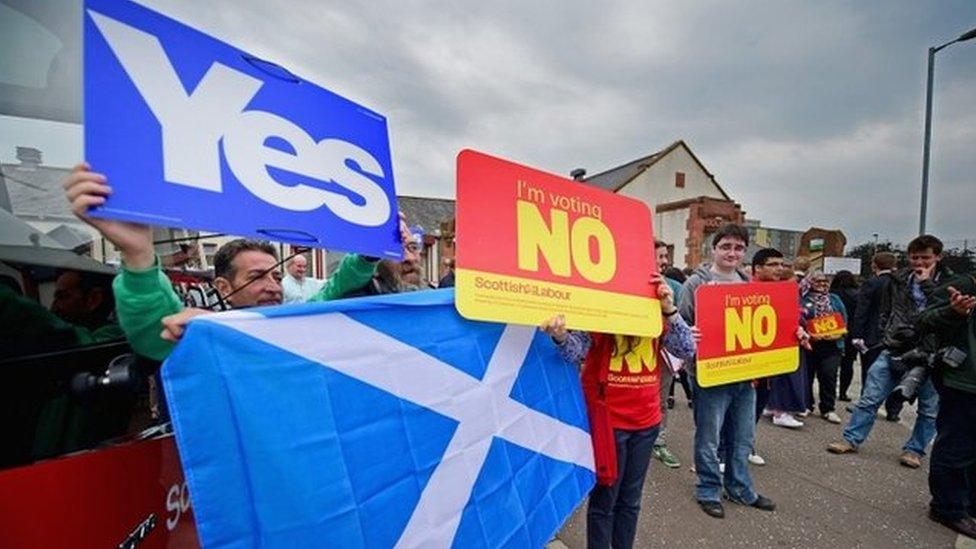Scotland independence: How did the indyref affect 16-year-old voters?
- Published
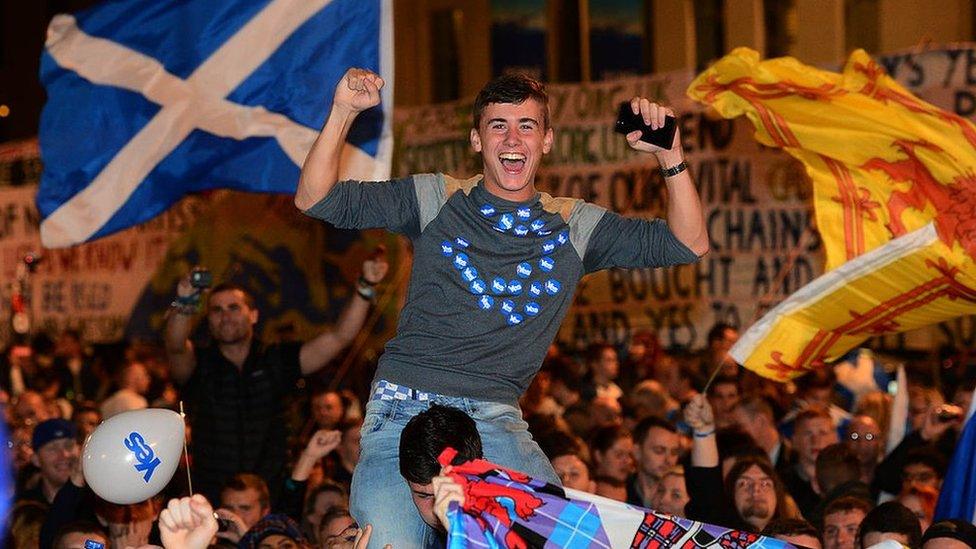
Five years ago, a new generation of young voters went to the polls to cast their vote on an issue that could change the course of history in Scotland.
Of the 3.6 million people who voted in the independence referendum on 18 September 2014, more than 100,000 were 16 and 17-year-olds.
It was the first time people under the age of 18 had been able to vote in Scotland - but what impact did the referendum result have on their lives?
'We need time before another referendum'
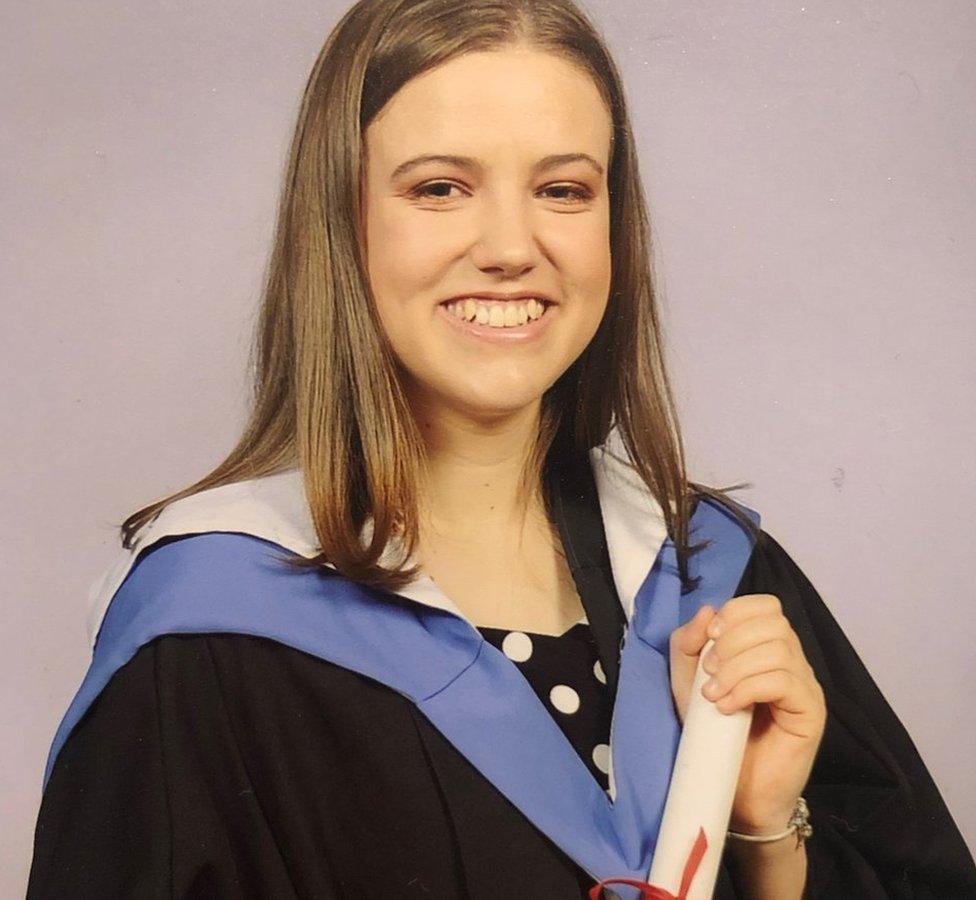
Yes voter Aimée Ronald now wants to forge a career in politics
Aimée Ronald, 21, was on the fence about independence until a few days before casting her vote, age 17.
A top student at Stewarton Academy in East Ayrshire, she was selected to pose a question to politicians during the BBC's Big Big Debate programme, which aired just two days before the referendum.
She went in with an open mind, but after hearing Nicola Sturgeon, Patrick Harvie, Ruth Davidson and George Galloway address her concerns on jobs for school leavers and graduates, was swayed to the Yes side.
She said: "It was mainly because of George Galloway - it was his demeanour and attitude. I didn't like him as person and thought I didn't want to be associated with someone like him on that side of the debate.
"Coming away I felt Nicola Sturgeon answered it best but they all had very indirect answers. And it was such an important question for everyone there."
Five years on, employment is still a concern for the Cath Kidston sales assistant, despite her first class degree from the University of Strathclyde and years of volunteer work with the Girl Guides.
She was initially going to study languages but switched to social policy, politics and international relations after hearing an EU referendum was on the horizon.
She said: "I've now started looking for a degree-related career. It [Brexit] swayed how I spent four years of my life - I thought if ever there was a time to get involved in policy, it's now."
A Remain voter, Aimée said the 2016 result left her feeling "disheartened" and "scared" due to uncertainties over medical supplies.
She said: "I'm diabetic and it was scary for me when I heard all the stories about access to medicines. At no point did I feel confident I would have things I needed.
"When I heard what the result was my dad had to do a lot of comforting, but now Brexit has taken so long I'm just fed up with.
"I have more confidence in Nicola Sturgeon - she understands what she's doing. If there was another Scottish independence referendum I think that I would vote Yes but I also think we need time.
"I don't know how a vote would go in the next year after Brexit - there's already been so much change."
'I have a Scottish identity, but also an English past'
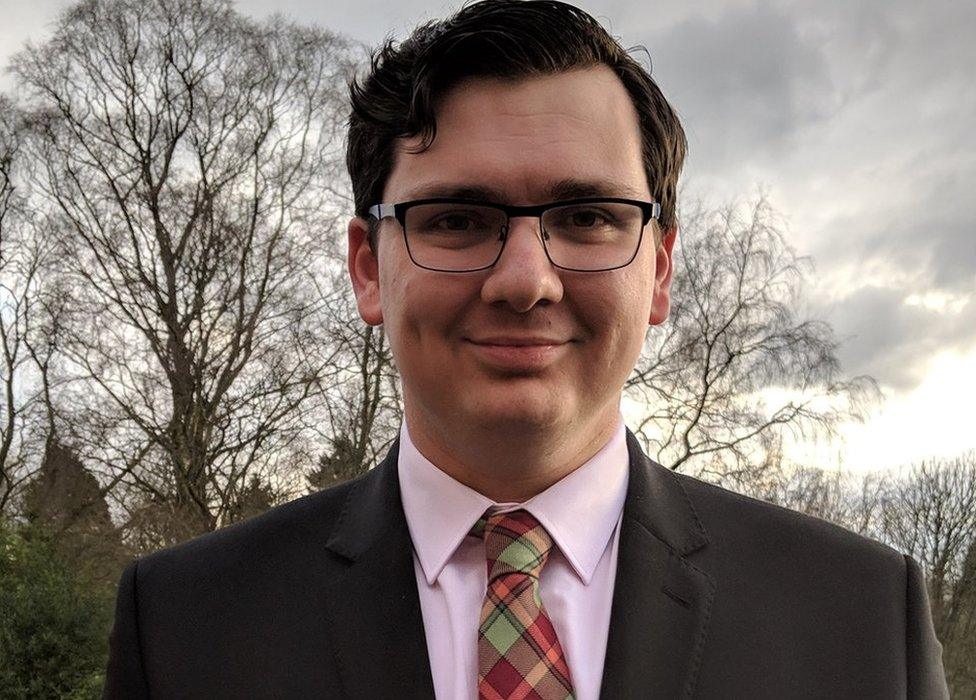
Finlay Allmond was a strong No voter from the start - and would vote No again
Like many other indyref voters, Finlay Allmond had a strong link with the rest of the UK.
His parents moved to Nairn in the Highlands just before he was born and, at age 16, he was not ready to sever ties with England and Wales.
Finlay said: "There was that emotional connection to the union - of it being the country as a whole where I was from. I have a Scottish identity, I was born and grew up here but I also have an English past and Welsh ancestry as well.
"I felt very proud of both the emotional side and the practicalities of the union and of Britain's place in the world, despite the UK's failings historically, I thought it was able to be a place for good."
Finlay's interest in the UK's place in the world prompted him to study international politics at the University of Stirling.
He is particularly interested in humanitarian development work and migration, and worked at a refugee port in Italy for six months after finishing high school.
But he went on to vote Leave during the EU referendum, but says the deciding factor for him was neither migration or sovereignty.
'I'm very pro-migration'
He said: "I'm very pro-migration, I think we need it to bolster the economy and to harbour international spirit within the global community.
"It came down to balance. It was about whether the EU in its current form was the best vehicle to tackle the issues we face as humanity and my thoughts were it wasn't and that Nato and the UN were.
"I'm not currently pleased with how things are going because of the political gainsmanship taking place at moment - it doesn't seek to serve the interest of anyone other than those at the top."
Finlay is firmly against the idea of a no-deal Brexit because of the economic risks. Now he says we need another EU referendum because "it's impossible to say what is the will of the people" - but isn't entirely sure how he would vote this time around.
He would however still vote No in the event of another indyref, and believes his peers would respect his views.
He added: "The nature of political debate amongst my generation is quite interesting. We are able to foster a more harmonious way of communication and discussion than that which we see in the leaders of our country.
"Shouting people down doesn't happen much in this generation because we have been so politically engaged and forced to discuss both sides.
"People's views are well held and can get quite heated but there is still mutual respect."
'Why were so few talking about climate change?'
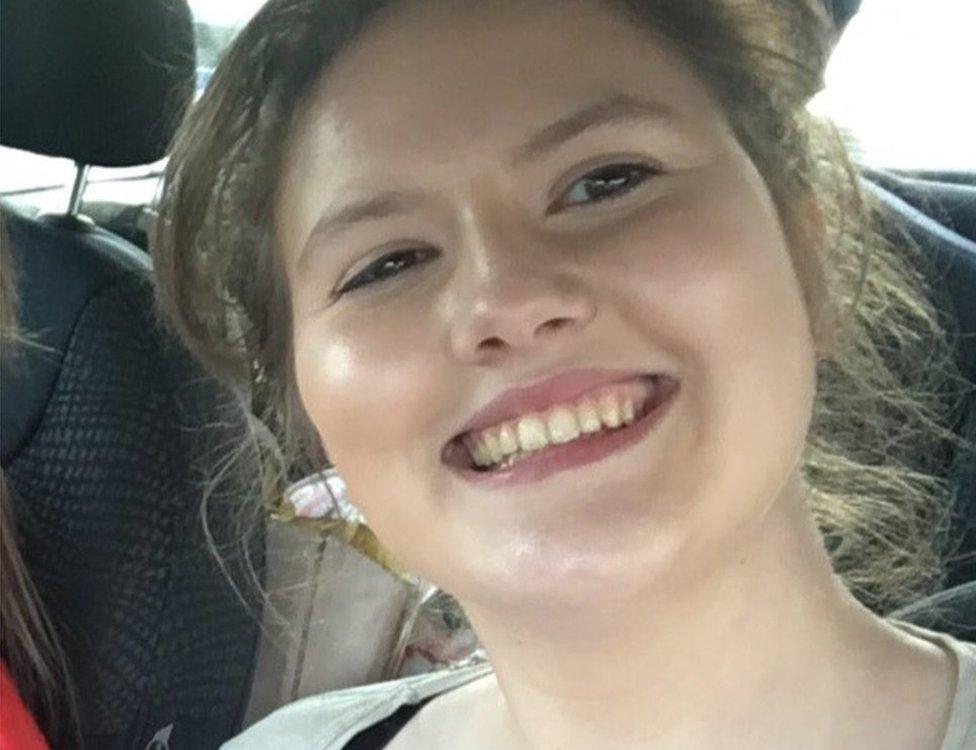
Isla Surgeon voted Yes in the referendum and backs the Scottish Greens
Despite growing up in a family full of Yes voters, Isla Surgeon was unconvinced by the independence campaign's arguments until the 11th hour.
At the age 16 she was concerned about university places, tuition fees and energy sources.
She said: "My family were in the oil industry then, so I was concerned about how it would be affected - what was the plan, basically. Was it going to be a total shambles or were we going to be ok?"
In the end Isla voted Yes, and found herself drawn to the arguments of the Scottish Greens, particularly during the Big Big Debate - which she also attended.
'We need to start recovery'
She said: "I have to say they (the Greens) were interesting, I had never really thought about them before. I knew what they stood for but it was interesting to see them supporting the SNP as well as saying 'this is what we can do for young people'.
"They were so anti-oil and so forward-thinking with renewables. You had people saying there's heaps of time left in the industry. It seems like an issue that should have been more important much longer ago."
Originally from Edinburgh, Isla moved up to Aberdeen to study law, but later dropped out having realised the subject was not for her.
She currently works with horses at a breeding stables, is about to start a beautician course and is expecting her first baby in January with her fiancé.
With so much change in her future, Remain-voter Isla said she was "sceptical" about the prospect of Brexit.
She said: "Part of me would say the EU thing needs to end and we need to start recovery as there's been such a financial impact already on the pound.
"Part of me thinks I'm in a better position - I'm self employed but there are companies constantly looking to cut corners and we're going to see a more noticeable change in standards you could expect at work, like health and safety and the minimum wage, which is derived from the EU."
'It's becoming a neverendum'
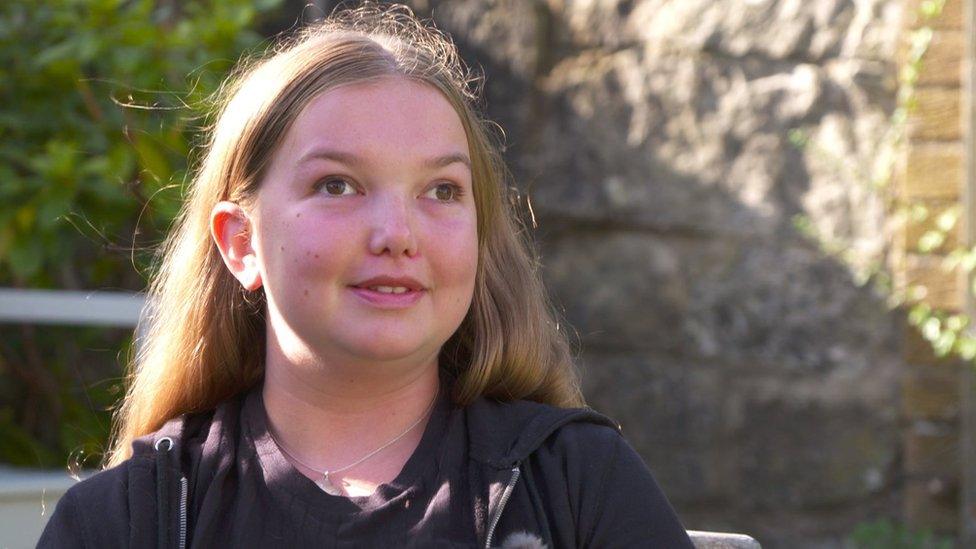
Natalie Curran says she voted No in the referendum because she was unconvinced by the Yes campaigns's currency plans
Bucking the trend among her Yes-voter classmates, Natalie Curran was a firm No voter in the lead up to 18 September 2014.
The 22-year-old was 17 by the time the vote came around, and was never thoroughly satisfied with the currency plan in an independent Scotland.
She said: "They never really answered the currency question. I didn't have any confidence in that.
"Also you don't realise what you've got until it's gone. We have so many advantages in Scotland such as free education at university level, free prescriptions. I think a lot of that would go because we'd no longer be part of the UK economy.
"Roughly I believe that 80% of our trade is with the UK, not with anywhere else so why would you wilfully put barriers between that?
"People tried to say there wouldn't need to be a solid border - of course there would be, you've got that exact problem happening now with Northern Ireland, the Irish Republic and the EU. We would have had that exact same problem five years ago."
'The divisions have mellowed'
Natalie, from Glasgow, is at the University of York studying mathematics having previously studied philosophy, politics and economics.
Although she says she is used to "rivalries" within her home city, she believes the 2014 vote stirred up "anti-English" divisions and says she would vote No again in any future referendum.
Natalie said: "I didn't like some of the atmosphere. People seemed to equate the rest of the UK with England.
"I think the divisions have mellowed but not gone - they were already there and are still there particularly in light of the EU referendum and the fact the majority of Scotland voted to stay and the rest of the UK largely voted to Leave.
"The Scottish Parliament are now trying to angle in another referendum to the point where it's becoming a 'neverendum'.
"Even if Scotland became independent there's no guarantee we'd get back into the EU and we could end up shooting ourselves in both feet. I do have a serious issue with how much these campaigns cost."
- Published18 September 2019
